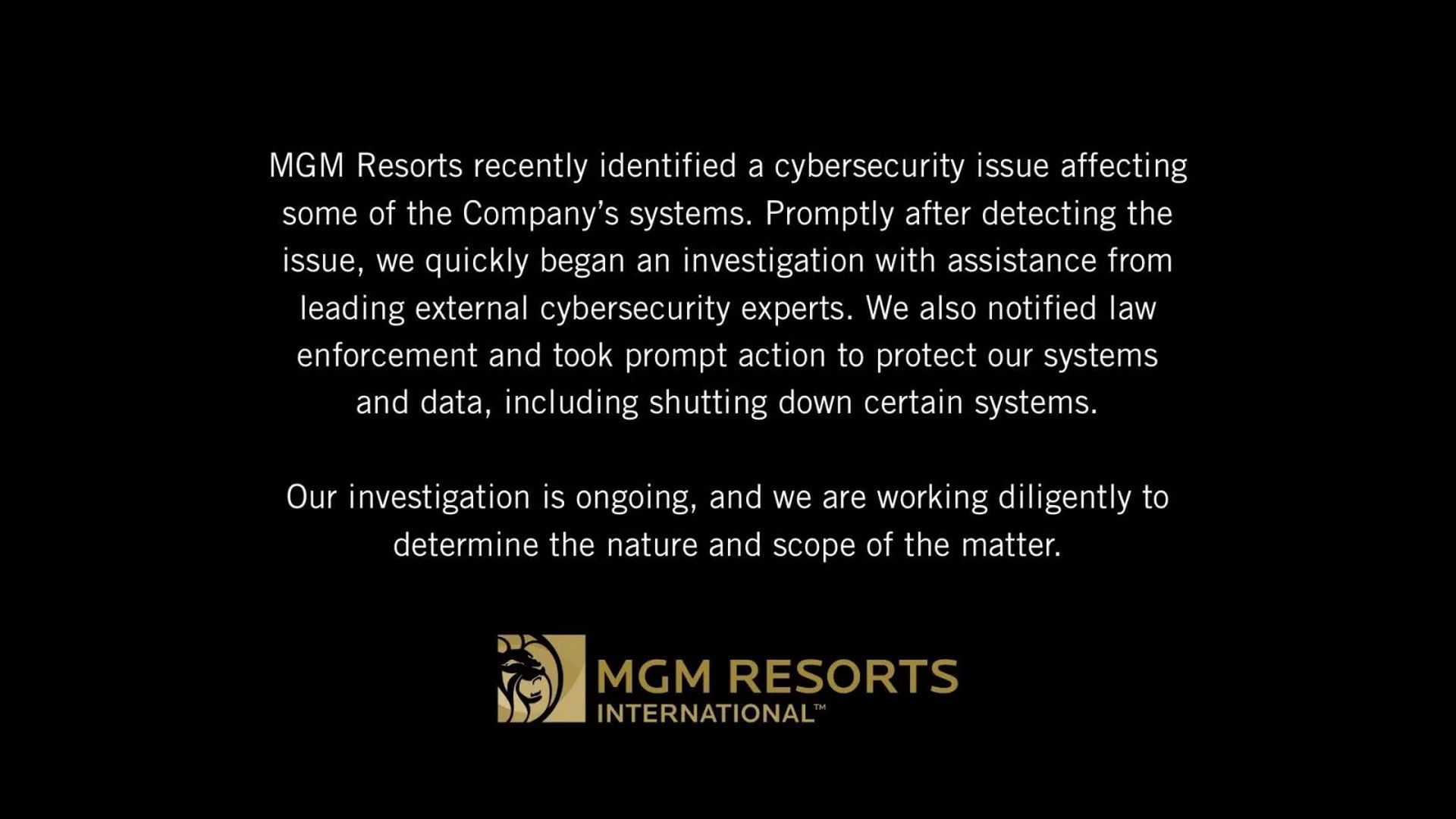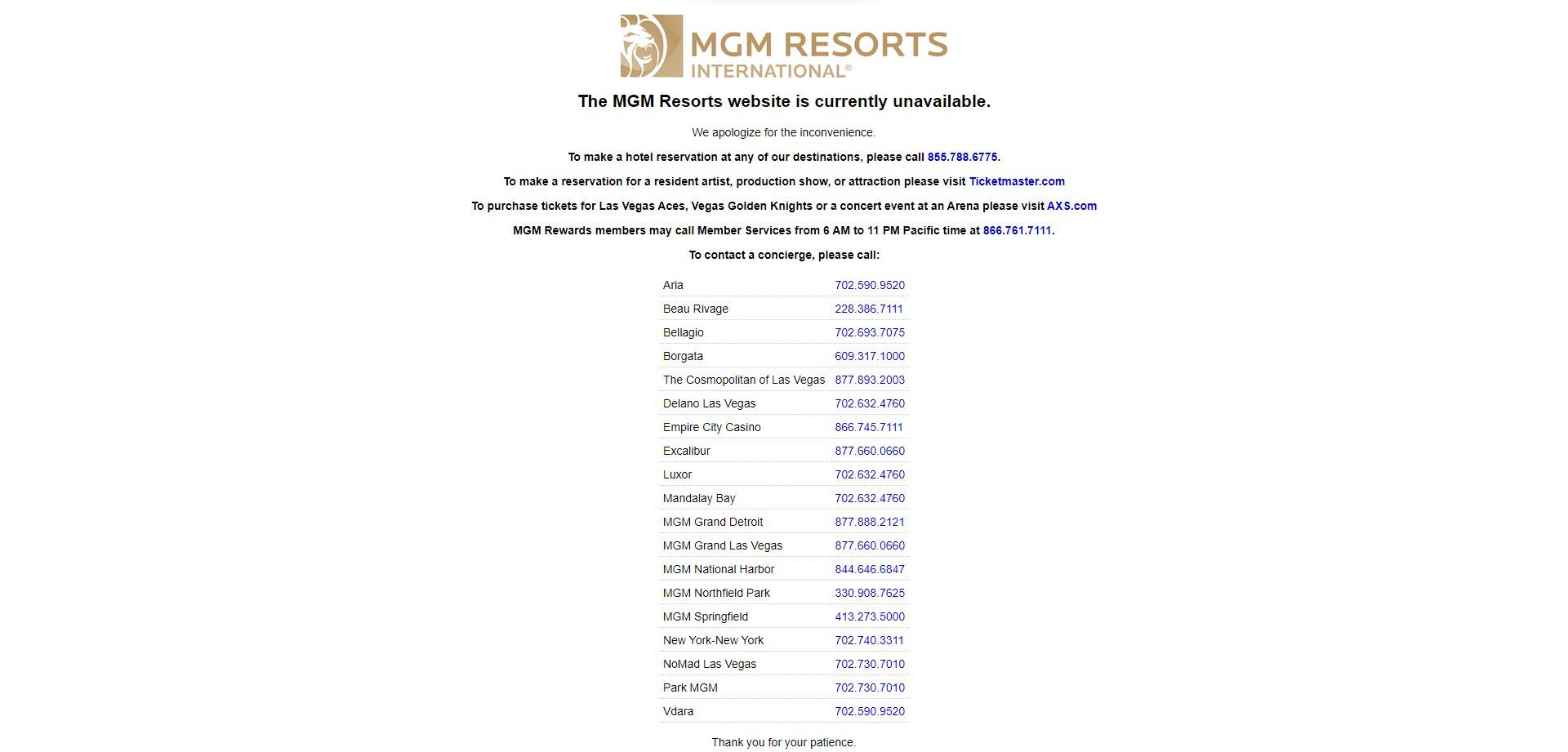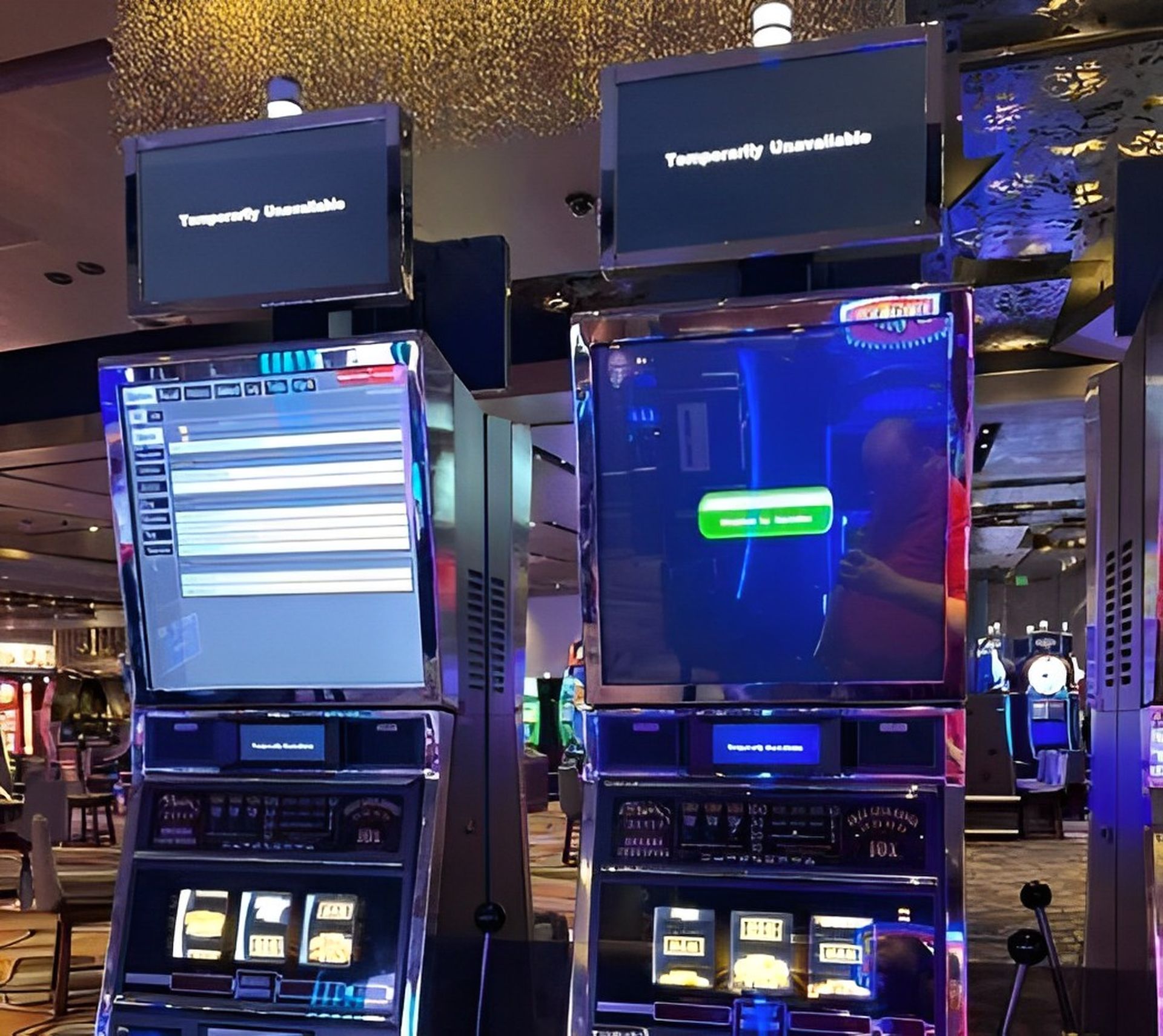In a recent development, the news of the MGM cyber attack Las Vegas has taken users by surprise, impacting various critical systems, including their primary website, online reservation services, and in-casino facilities like ATMs, slot machines, and credit card machines.
MGM Resorts promptly addressed the issue after its detection, immediately launching an investigation and taking swift measures to safeguard their systems and data. As a precautionary measure, certain systems were temporarily shut down.

How did the MGM cyber attack Las Vegas unfold?
The disruption commenced on Sunday night and as of now, computer systems across the resorts remain offline. To mitigate the impact, the company has shifted to manual operations, affecting services like ATMs and credit card machines on the properties.
The main MGM Resorts website is currently inaccessible, redirecting customers to make reservations through phone assistance.
MGM Rewards patrons are also feeling the impact, with instructions to reach out to Member Services between 6 AM and 11 PM Pacific time for assistance. Additionally, all MGM websites under the domain name mgmresorts.com have been offline for an extended period.

Specific locations affected
Notably, properties like MGM National Harbor, Empire City Casino, MGM Springfield, MGM Grand Detroit, Beau Rivage, and The Borgata have all experienced website outages, with visitors advised to contact a provided phone number for further assistance.
Reports from guests also indicate issues with room keys, while local media outlets have observed non-functional slot machines displaying temporary unavailability messages.
MGM Rewards app and other platforms
The MGM Rewards app is also impacted, prompting members to seek assistance at the front desk. However, it’s important to note that other MGM apps, including MGM+ and the MGM Sportsbook, remain unaffected.
Past incidents and future outlook
This incident marks the second time MGM Resorts has faced a cybersecurity breach, with the previous occurrence in 2019 resulting in the compromise of over 10 million customer records through a breach in one of the company’s cloud services. In 2020, the stolen data, encompassing guest information like names, birthdates, email addresses, phone numbers, and physical addresses, was openly shared on a hacker forum.
The extent of the impact of the MGM cyber attack Las Vegas on individuals due to the cybersecurity disruptions remains unclear. MGM, a renowned casino and hotel giant, boasts thousands of hotel rooms in Las Vegas, including well-known properties like Mandalay Bay, Aria, the Bellagio, and MGM Grand Las Vegas.

In the case of MGM, the attacker or attackers might have identified vulnerabilities within the company’s security measures and exploited them to disrupt its systems.
These cyberattacks are typically driven by profit motives and attackers commonly pilfer a company’s data and demand a ransom in exchange for its release. Alternatively, they might choose to sell the stolen data in clandestine online markets, where buyers seek information for potential identity theft, such as names, numbers, or addresses.
Given MGM’s substantial size and extensive data holdings, it has become an attractive target for such cyber threats such as the MGM cyber attack Las Vegas.
As of now, the exact nature and purpose behind this cyberattack remain undisclosed. MGM Resorts International is working tirelessly to rectify the situation and restore their systems. This incident serves as a stark reminder of the persistent threats faced by organizations in the digital age, emphasizing the critical importance of robust cybersecurity measures.
Featured image credit: MGM





